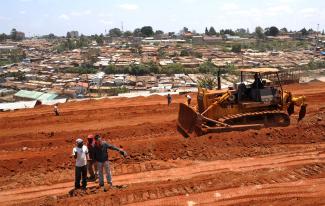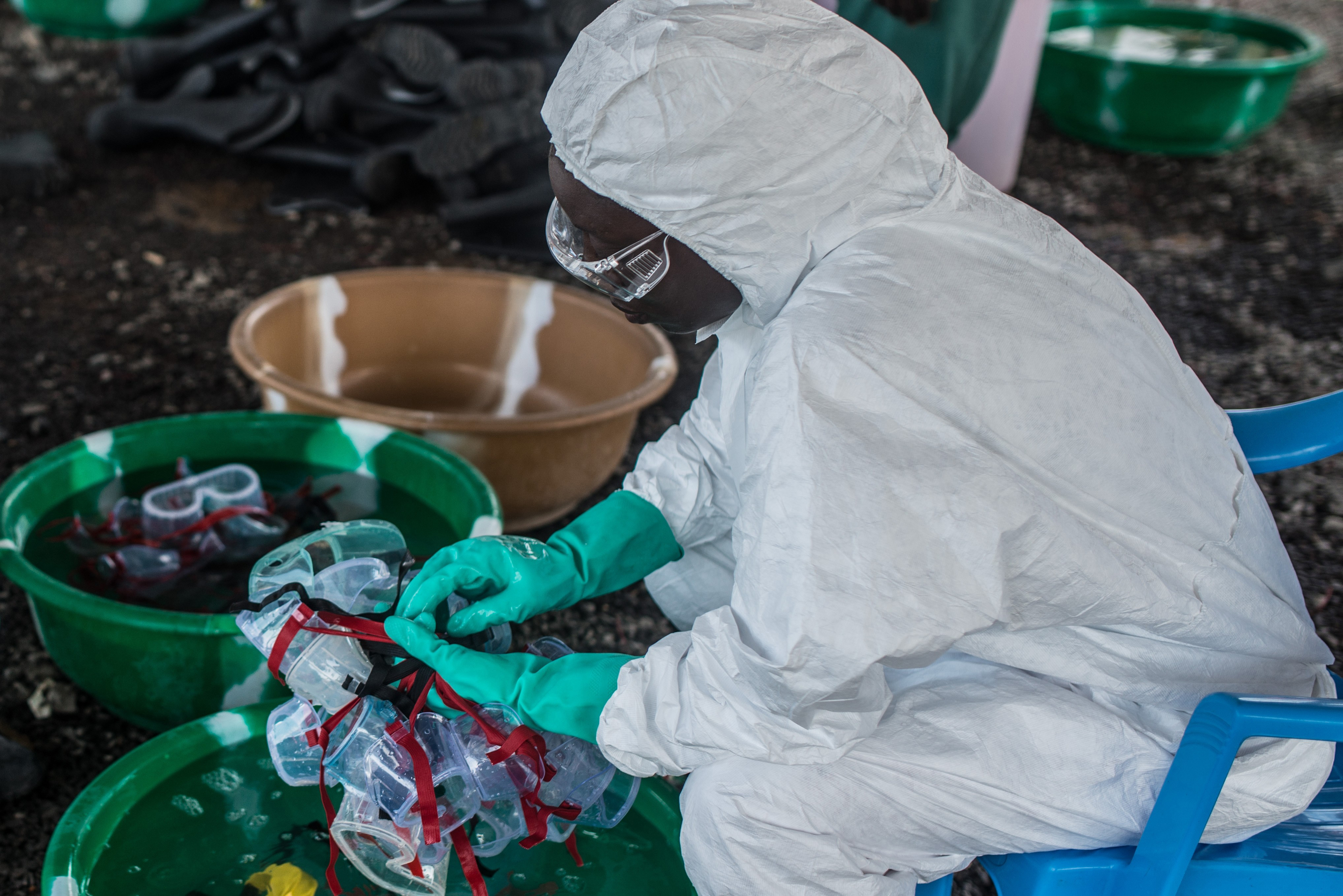International policymaking
Growing complexity

Emerging markets’ increasing economic and political clout is putting in question the established order of multilateral institutions. The governments of the rising giants must assume global responsibility even though they still face daunting challenges at home.
Brazil, China and India account for almost 30 % of global economic output today. That is oly slightly less than the combined shares of the USA, Germany, France, Canada, Italy and Britain. South-south trade is increasing, boosting development further. The UNDP’s Human Development Report of 2013 even speaks of „the rise of the south“ because many developing countries have been experiencing faster growth than was expected only a few years ago.
Change means challenges however. Emerging markets have become major donors of development assistance to other countries. They have also become able to contribute a larger share of funding to international organisations. At the same time, it is becoming more difficult to coordinate different partners’ development efforts. There can be no doubt that the aspiring giants must shoulder more responsibilities (please note interview with Dirk Messner on p. 294 ff.).
The international community should grant the emerging markets more time, says Sachin Chaturvedi, who works for India’s governmental think tank Research and Information System for Developing Countries. In his view, the governments concerned should coordinate policy without being influenced by the established economic powers in order to focus on common goals and contribute to international policymaking in a meaningful way.
Dirk Niebel, Germany’s minister for economic cooperation and development, is of a different opinion. He says the established powers and the emerging markets should meet at eye-level. Greater influence, in his view, implies more responsibility. At a conference held by his ministry in cooperation with the UNDP in Berlin in June, the minister also stressed the opportunities brought about by recent trends. It is healthy, according to him, that official development assistance can be discontinued in some places due to economic success. Nonetheless, Germany will continue to support partner countries with financial credit and knowledge transfer in areas where doing so makes sense, Niebel promised, mentioning the shift away from nuclear power and fossil fuels as an example.
Niebel expresses himself in favour of triangular cooperation which involves an established donor, a new one and a developing country. Relevant players, moreover, include private-sector companies and civil-society organisations along with government agencies, according to the minister. His officers speak of promising experiences in Africa where Germany has teamed up with South Africa in support of other countries such as the DR Congo. In these settings, South Africa plays a mediating role.
Overburdened giant
Francisco Gaetani of Brazil’s Ministry for the Environment emphasises the relevance of regional cooperation. He is proud of an alliance that includes all countries in the Amazon basin. He points out, however, that this alliance cannot rise to all regional challenges on its own. To protect the rain forest, the officer says, global policymaking is indispensable. The Amazonian countries want to be financially compensated for foregoing economic growth in order to protect the global climate, which is a global public good (please note essay on the European Report on Development on p. 292 f.).
Leaders from emerging markets sometimes complain about being overburdened. Gaetani says his government is expected to do more at the international level while it still needs to ensure that all of its people benefit from national development. He wants established powers to acknowledge this need. In fact, recent rallies and riots in Brazil prove that inequality and poverty remain crucial issues in Brazil.
Civil-society organisations point out that what governments want is not always in line with what their people want. China’s government is focussing on economic development, says Khin Muang Yin of the Berlin-based Burma Project, but many of its people are keen on environmental protection. They suffer from air and water pollution. Yin argues that international partnerships would make sense in areas like this, involving established donors, emerging markets and developing countries.
Too many potholes
It is also worth noting that south-south cooperation is not valuable in every case. The UNDP’s Khalid Mailik points out that China is investing massively in African infrastructure, but that there are no institutions to ensure the sustainability of that infrastructure. Indeed, ever more voices in Africa are bemoaning that, while some Chinese-funded roads are very good, others have proved shoddy and are full of pot holes only a few years after being opened to traffic.
Experts agree that there is no such thing as a homogenous “global south”. Every country has particular strengths and weaknesses, and all are pursuing their own interests. Some witness promising growth, others seem stuck in poverty. Even within countries, interests diverge, with some regions developing fast and others lagging behind.
Such growing diversity means that the need for policy coordination is growing. International organisations must step in. Jan Rieländer of the Organisation for Economic Cooperation and Development says that his employer basically serves countries to share knowledge and share experiences. To date, it is basically an organisation of rich nations. Rieländer believes it should open up to new partners. Developing countries, he argues, need opportunities to learn from one another in a systematic manner too.
In many ways, the OECD reflects international power relations after the Second World War. The same can be said of the World Bank, the International Monetary Fund and the UN Security Council. Diplomats from rising powers increasingly question the legitimacy of these bodies and demand reforms, which the established powers are reluctant to accept because they are set to lose influence. UNDP expert Malik says the UN, let former colonies join as members with equal rights after independence, enjoys particular legitimacy. It is rooted in common values, he says, and promotes those values in its relations with its members.
In Malik’s eyes, it is essential to leverage the institutional advantages of international organisations for regional and bilateral cooperation. In the increasingly complicated global scenario, bilateral cooperation sometimes looks particularly promising to Germany’s Federal Ministry for Economic Cooperation and Development because it gives scope to designing measures in a way that suits both parties involved.
Mareike Forchheim









